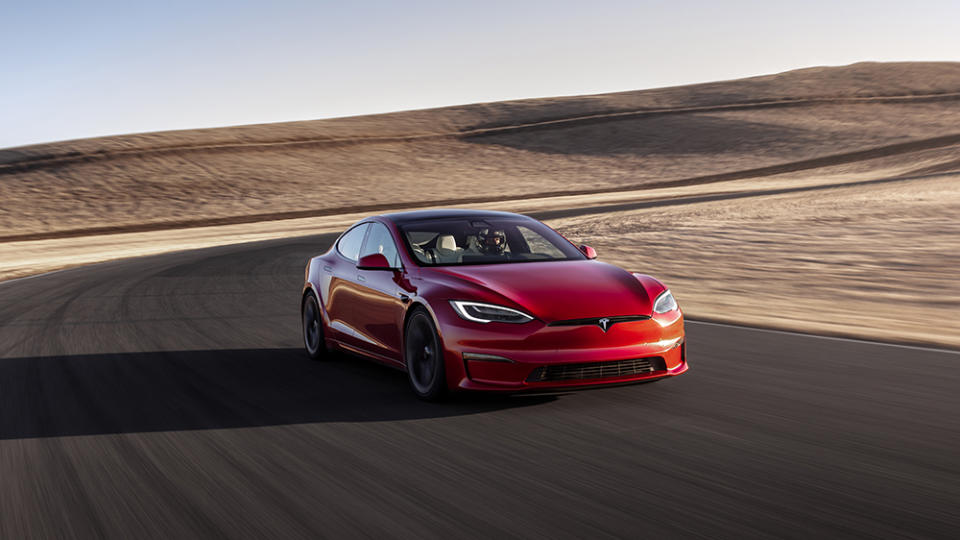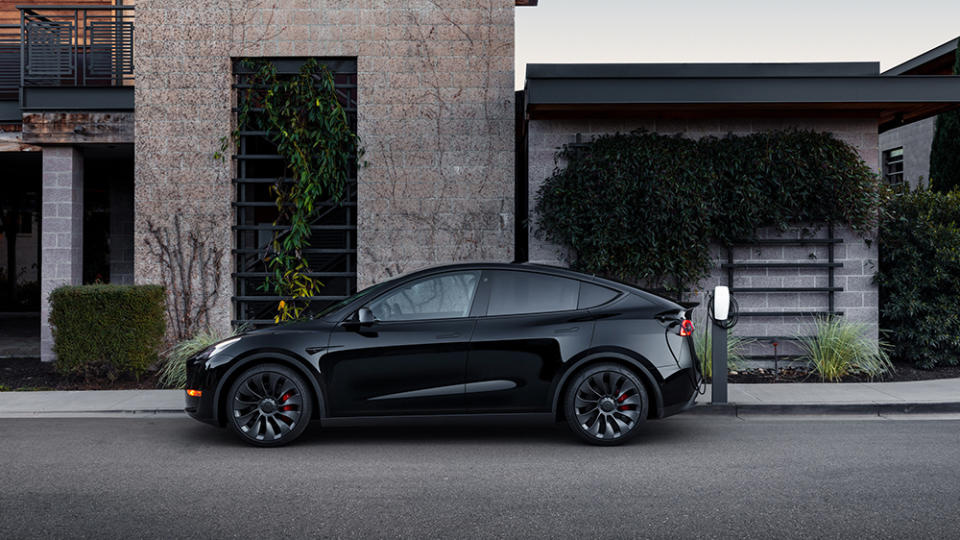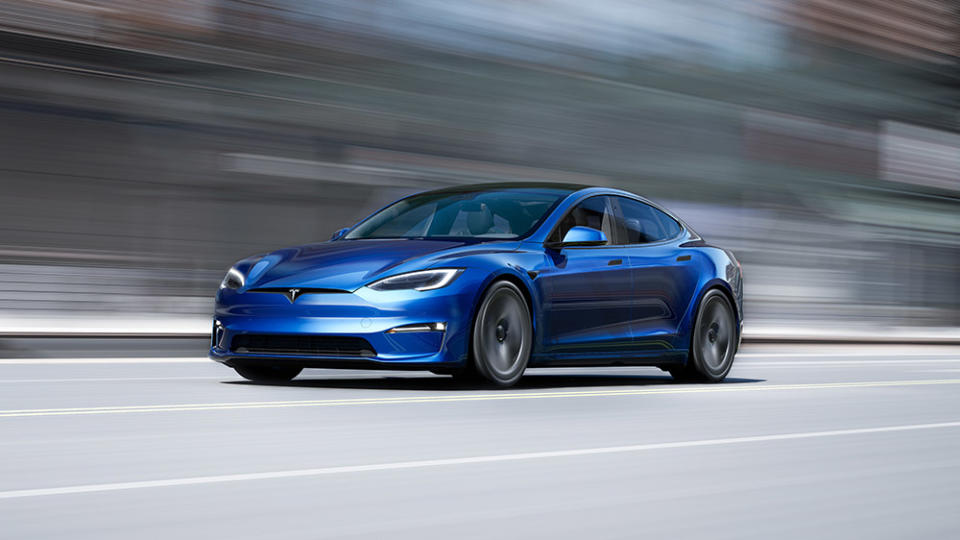Tesla Reportedly Exaggerated Its EVs’ Range for Years—and Set up a Secret Team to Suppress Complaints

Tesla’s vehicles might not be as efficient as the automaker says they are.
The EV giant has allegedly been exaggerating the driving range of its vehicles for years, according to a new report from Reuters. The Austin-based company is said to have even gone as far as to set up a team to suppress complaints about the issue.
More from Robb Report
Porsche's New EV Charging Station in Germany Includes a Luxe Lounge for Drivers
This New E-Bike Looks a Lot Like the Tesla Cybertruck-and That's the Point
Porsche Says It Will Keep Building Its Gas-Powered 911 for 'as Long as Possible'
The article claims that Tesla has been intentionally inflating the in-dash range-meter projection on its EVs for about a decade at the behest of its CEO, Elon Musk. A source familiar with the matter told the news agency that the executive reportedly gave the directive to rig its range estimating software. The resulting algorithm provided a “rosy” range projection, as opposed to an accurate estimate of how far the EV could travel before it needed to be recharged.

The in-dash readout would become more realistic once 50 percent of battery capacity had been used up to prevent drivers from becoming stranded, according to the source. Tesla also reportedly built in a “safety buffer” of 15 miles of range even after the meter showed an empty battery.
“Elon wanted to show good range numbers when fully charged,” the source told the news agency, adding, “When you buy a car off the lot seeing 350-mile, 400-mile range, it makes you feel good.”
Reuters reports that the practice allegedly began during a time when Tesla was selling just two models, the first-generation Roadster and the Model S. Today its lineup includes the Model S, 3, X, and Y, with the Cybertruck set to join once it goes into volume production. It’s unclear whether the company is currently engaging in boosting in-dash range estimates, according to the publication, but testers and regulators have continued to call out the company for exaggerating the distance its vehicles can travel between charges.

Earlier this year, South Korean regulators fined the company because its EVs delivered less than half their advertised range in cold weather. The U.S.’s Environmental Protection Agency, meanwhile, has required the company to reduce the listed range of six of its vehicles since 2020 by an average of 3 percent.
If you’re wondering why Tesla drivers haven’t been more vocal about the issue, it could be because of efforts have allegedly been made to suppress complaints. Reuters reports that after the company became inundated with complaints about the issue, it created a secret “Diversion Team” based out of Las Vegas to cancel as many range-related service appointments as possible. The team reportedly closed hundreds of cases per week, and members would occasionally celebrate by striking a xylophone “triggering applause from coworkers who sometimes stood on desks,” according to the story.
Tesla did not respond to a request for comment from Reuters about any of the allegations made in its report. The company also did not respond to a request for comment from Robb Report on Friday.
Reuter’s article points out that it is not uncommon to see an EV’s range drop after it’s no longer at full charge, especially when driving on the highways or in inclement weather. Still, the agency reports that a study conducted by EV analytics firm Recurrent with the help of a National Science Foundation grant found that the battery-powered Ford Mustang Mach-E, Chevrolet Bolt, and Hyudai Kona were all more accurate in estimating their range.
Best of Robb Report
Sign up for Robb Report's Newsletter. For the latest news, follow us on Facebook, Twitter, and Instagram.

 Yahoo Sports
Yahoo Sports 
